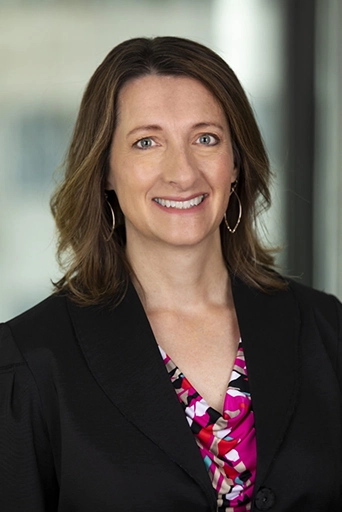
Success in mental health and substance use treatment starts with whole health care. Pam Pietruszewski, MA, has more than 20 years of experience designing and implementing programs to integrate behavioral health and primary care services. In this interview, she shares insights about what motivates her as a consultant, her consulting style and her journey to the National Council.
What are your areas of expertise as a consultant?
My expertise is in motivational interviewing and prevention and early intervention for unhealthy substance use. In my role, I get to think about how the different pieces of integrated care come together. How do we take what we know about physical, emotional, behavioral and social factors to address people’s whole health needs? I try to destigmatize challenges by reminding clients we’re all trying to get through this life the best we can. That’s what integrated care and working toward wellness is all about – finding that common humanity and then tapping into team members for expertise or skill sets to move things forward.
How would you describe your consulting style?
I’m detail-oriented and practical. It’s important that I get to know who my audience is, why they want to be there and what they want to take away, so I can determine how what I provide can best fit their needs. I try to look through their lens: What impacts their level of engagement? What makes this important to them? It matters to me that they’re excited to be there. If not, I need to switch things up to make sure they feel involved and included and are getting what they need.
What motivates you as a consultant?
I really like teaching and training through collaboration. I view my role as someone who helps facilitate other people’s thinking. It’s one thing to have information to share, but it’s even more valuable to help people take that information and figure out how and in what way it can fit with their goals or values. Collaboration, teaching and training combined is a lot of fun. It’s very gratifying when people walk away from a session thinking, “I can use this, and I’m ready.”
Do you have an example of this type of “a-ha” moment in action?
I was working with a health center in California, helping them implement Screening, Brief Intervention and Referral to Treatment (SBIRT). After a bunch of training and consulting regarding how to shape their services and use their staff to their potential, one provider paused and said, “I’m realizing that interventions take many forms including engaging patients to gain their trust and guiding them through the decision-making process.” It was so gratifying to hear him come to that conclusion and see the team valuing being part of an integrated care model.
How did you start your consulting journey with the National Council?
When I was working in Minnesota, we led a primary care depression program that was having statewide success. The National Council heard about us and asked if we wanted to broaden the implementation to National Council members, which led to additional consulting. Also, I had attended NatCon a couple of times, and they were the best conferences I’ve ever experienced. I remember thinking at the time, “If I had a chance to work at this place, that would be really cool.” Now, here I am!
What do you enjoy most about being a consultant for the National Council?
I love the national reach of the organization. I get to collect experiences from so many diverse places. As a consultant, I get a birds-eye view of issues and also get to be on the ground with people, helping them succeed. I may bring the subject matter expertise, but I also learn so much in the process. I can see what’s helping or hindering a health center in California or hear about the challenges and the resourcefulness of a rural community-based organization in Montana. I try to incubate all of this knowledge so I can share it across the many places I’m fortunate to visit as a National Council consultant.
What can we find you doing when you’re not working?
I have a 14-year-old golden retriever, and I am so thankful to be able to spend time with her —especially our slow, leisurely walks! I also love a good Netflix biopic, listening to podcasts, getting back to restaurants and doing those adult coloring books! It’s the simple pleasures for me.
Looking for consulting or training services? The National Council’s diverse team of consultants can help improve your service delivery and strengthen your leadership team. Request a consultation today!
Guest Author
Director of Content Marketing
National Council for Mental Wellbeing

